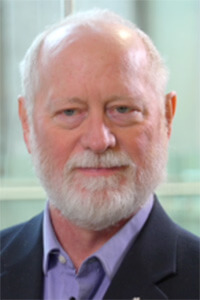A Role for Spontaneous Mutations in the Development of Childhood-Onset Schizophrenia
A Role for Spontaneous Mutations in the Development of Childhood-Onset Schizophrenia
Spontaneous (non-inherited) DNA mutations likely play a role in the development of childhood-onset schizophrenia (COS), according to new research. In a study published online October 28, 2015 in the European Journal of Human Genetics, researchers identified 20 of these genetic changes that may contribute to the disease, offering insight into the genetic origins of COS and possible paths to treatment.
Over the last decade, it has become apparent that rare spontaneous, or de novo, mutations are responsible for many human diseases, from cancer to mental illness. For disorders like adult-onset schizophrenia and autism, researchers have been able to drill down into the genetic sequence of patients and identify many such mutations.
Researchers find a role for spontaneous mutations in childhood-onset schizophrenia. Tweet >
Now researchers are exploring if de novo mutations play a similar role in COS. The research team from McGill University was led by Guy Rouleau, M.D., Ph.D, a 2010 NARSAD Distinguished Investigator grantee, and included Ridha Joober, M.D. Ph.D., a 2000 NARSAD Young Investigator grantee. Judith Rapoport, M.D., a 2009 NARSAD Distinguished Investigator grantee and member of the Scientific Council, also participated in the research at the US National Institutes of Mental Health.
To look for spontaneous mutations, researchers sift through patient DNA. But there is a significant amount of genetic variability from one person to the next, even among healthy people. The vast majority of this variability is unlikely to cause disease, including COS. So researchers use family units known as “trios” to pinpoint potentially damaging mutations. Trios consist of unaffected parents and a child with COS. Researchers examine the genome of each person, and compare the affected child with his or her parents to identify new mutations – ones not seen in either parent -- that might contribute to disease causation.
Using a small group of 17 trios, the researchers discovered 20 de novo gene variants that may play a role in the development of COS. Strikingly, these mutations were found in genes that are already known to be associated with adult-onset schizophrenia and other neuropsychiatric disorders. The results suggest that spontaneous mutations may be an important driver of COS, say the scientists, but further research will be needed with a larger group of patients to confirm the results.
Takeaway: Childhood-onset schizophrenia may be caused, at least in part, by spontaneous genetic mutations, not found in either parent. In this small study, researchers identified 20 candidate mutations that offer insight into the genetic basis of the disease.



